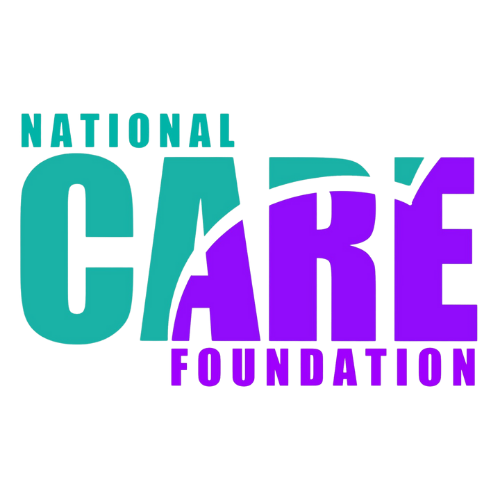Traumatic events can happen to anyone at any time. They can be sudden, unexpected and overwhelming. Natural disasters, car accidents, terrorist attacks, workplace violence and sexual assault are just some of the many types of traumas that can occur.
While it is not possible to completely prevent traumatic events from happening, there are things that you can do to cope with them if they do occur. These tips can help you to cope with the aftermath of a traumatic event and begin the process of healing.
Acknowledge your feelings
Acknowledging your feelings is one of the most important steps that you can take in order to cope with a traumatic event. The emotional pain you are experiencing can be both intense and overwhelming. It is important to accept and understand these feelings, rather than trying to push them away.
Do not be afraid to express your feelings. Talk to people that you trust, such as family and friends. Writing in a journal can also help you to come to terms with the emotions that you are feeling.
It is important to remember that no matter how intense your feelings are, they will eventually pass. Your emotions may feel like they will last forever, but often they will eventually move on. Taking the time to acknowledge your feelings and express them can help to make the process go more smoothly.
Find a support system
Finding a reliable and supportive system to help you cope with a traumatic event is also incredibly important. Having people in your life who you can depend on, who can provide emotional and/or physical support, is invaluable. If you do not have immediate family or friends in your life, you may want to consider a mental health professional or a therapist.
Finding support and understanding from those who have faced similar traumatic events can also be helpful. Consider joining an online or local support group, which can be an invaluable source of comfort. Seek out individuals who have faced similar events and can relate to your situation. Having someone to talk to and can provide advice, can help make dealing with a traumatic event a lot more bearable.
Seek professional help
It’s not always easy to cope with a traumatic event and for many, talking about it and processing it can be too overwhelming. Seeking therapy or professional help can be a great first step towards recovery and can offer immense emotional and psychological benefits.
Therapists and mental health professionals are trained and experienced to help people work through the unique reactions associated with traumatic events. A professional can help both provide validation of your feelings and experiences, as well as help you to build resilience and develop effective strategies to cope.
Additionally, a therapist or trained professional can also provide essential coping techniques, such as relaxation techniques and mindfulness, to help you manage feelings of stress, fear, and anxiety that can arise with traumatic events. Professional help can also help to provide emotional support and provide you with resources that a friend or family member may not be able to.
Engage in healthy coping mechanisms
Engaging in healthy coping mechanisms is also important when dealing with traumatic events. Healthy coping can help provide relief from the intensity of emotions and feelings that come up and can be helpful in the process to recovery.
Some coping mechanisms include:
1. Taking up Meditation: Meditation can help to calm the mind and provide relief during times of distress.
2. Practicing Relaxation Techniques: Relaxation techniques help to improve breathing and overall health. They can also help to reduce anxiety, manage stress and provide relief from tension and tightness.
3. Engaging in Physical Activity: Physical activity can also be beneficial to help manage and reduce stressful and anxious feelings.
4. Connecting with Nature: Taking a break to go for a walk in nature or easier yet, allowing yourself to just soak in the beauty of being surrounded with nature can help to calm the mind and reground the body.
5. Reframing Negative Thoughts: Reframing negative thoughts can help to give a more neutral or even positive perspective on a situation. This can help to create a more balanced outlook.
Take care of yourself
Taking care of yourself is the most important thing thing you can do in times of trauma. It’s important to be kind and forgiving of yourself when dealing with events that can be traumatic. Self-compassion practices can be hugely beneficial in times of distress. Taking the time to practice self-care can also help to reduce the intensity of the emotions surrounding the event, as well as provide a sense of grounding.
Some ways to take care of ourselves:
1. Give Yourself Permission To Feel: Allow yourself to have the feelings of distress without judgement. It’s ok to feel.
2. Get Enough Sleep: Getting a good night of rest is essential for emotional and physical well-being.
3. Eat and Hydrate: Proper nourishment and hydration can help to reduce feelings of stress and anxiety and provide us with the energy needed to cope with difficult times.
4. Connect With Others: Connecting with other people is a great way to relieve stress. Talking to friends or family can be therapeutic and provide a sense of support during the recovery process.
5. Exercise: Exercise and physical activity can help to reduce stress and improve mental and physical health.
6. Make Time For Fun: When recovering from a traumatic event, it is important to take time to enjoy leisure activities as they can provide an outlet for stress release.
Wrap up
It’s important to take the time to recognize, process, and move through the traumatic events you’ve faced in your life to allow for the healing process to begin. The seven tips outlined in this piece will help in learning how to cope with trauma, including providing yourself with permission to feel, getting enough sleep and exercise, eating and drinking healthy, connecting with others, and making time for fun activities.
By developing new coping skills, listening to your emotions and experiences, and practicing self-care, you can start to make strides towards healing from the trauma you’ve experienced. It can be hard to move forward, but taking small steps and practicing self-compassion can help you to recover and find the strength to take on new challenges. With the right tools, you can find ways to better cope with traumatic incidents in your life.

